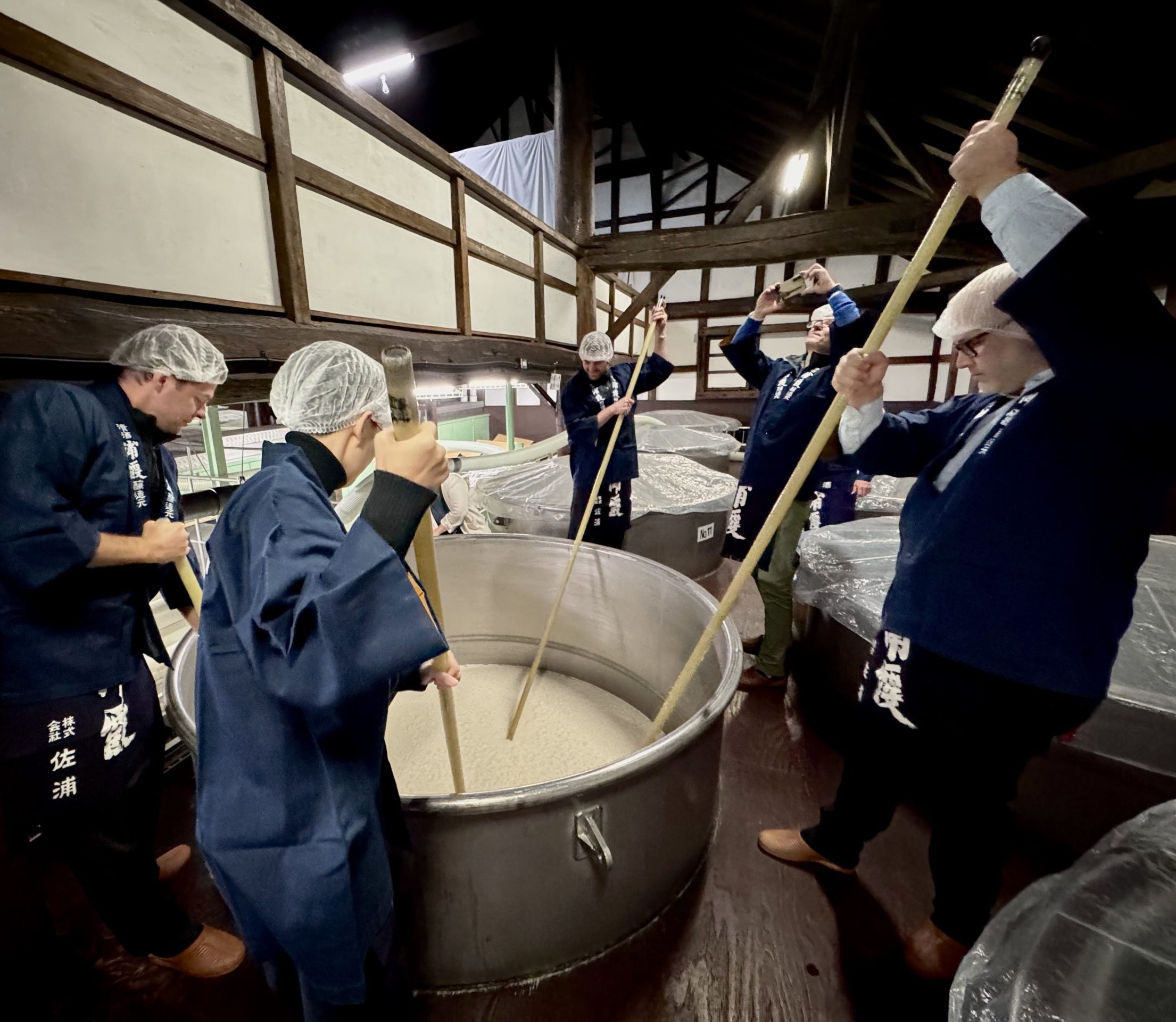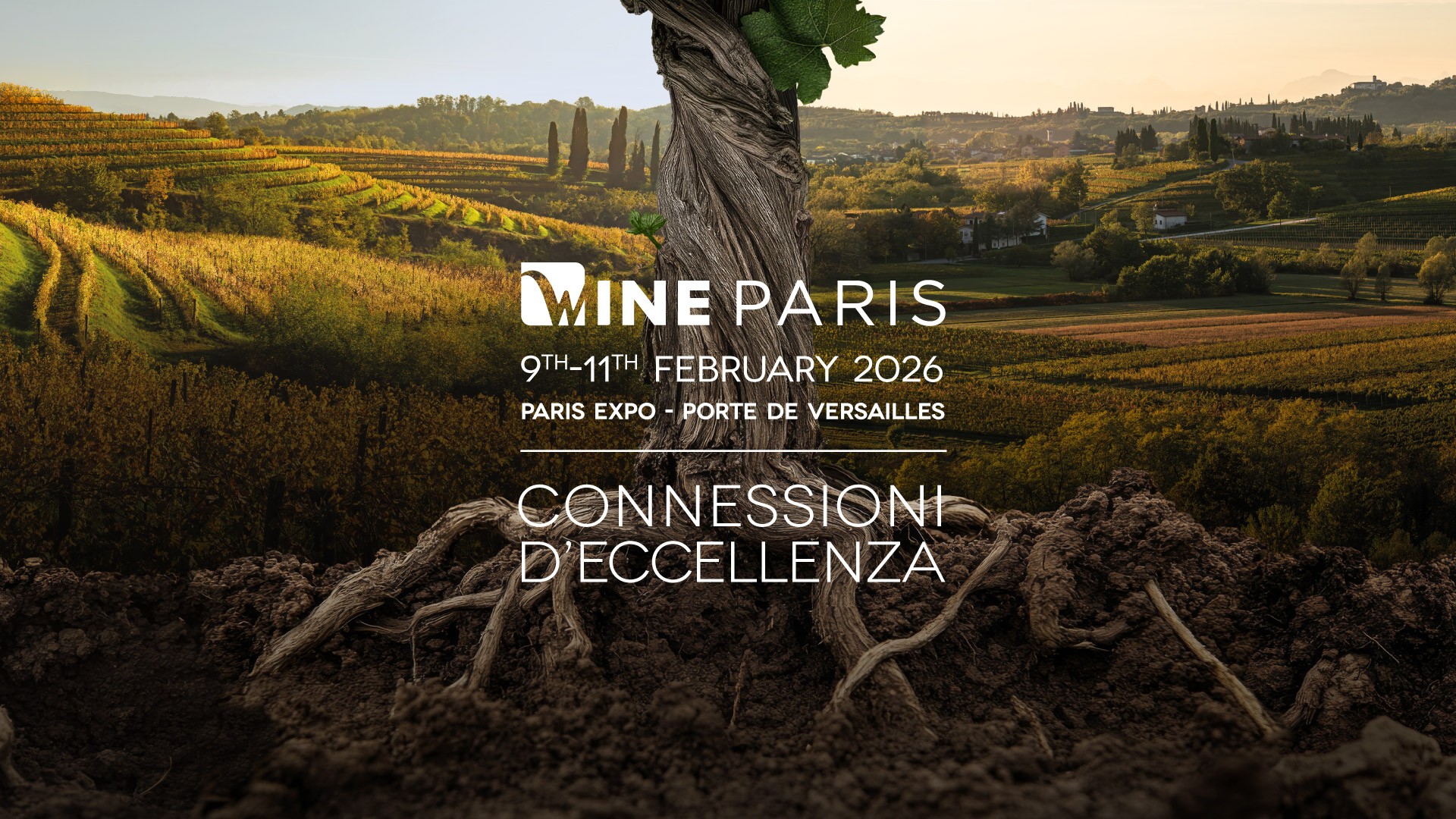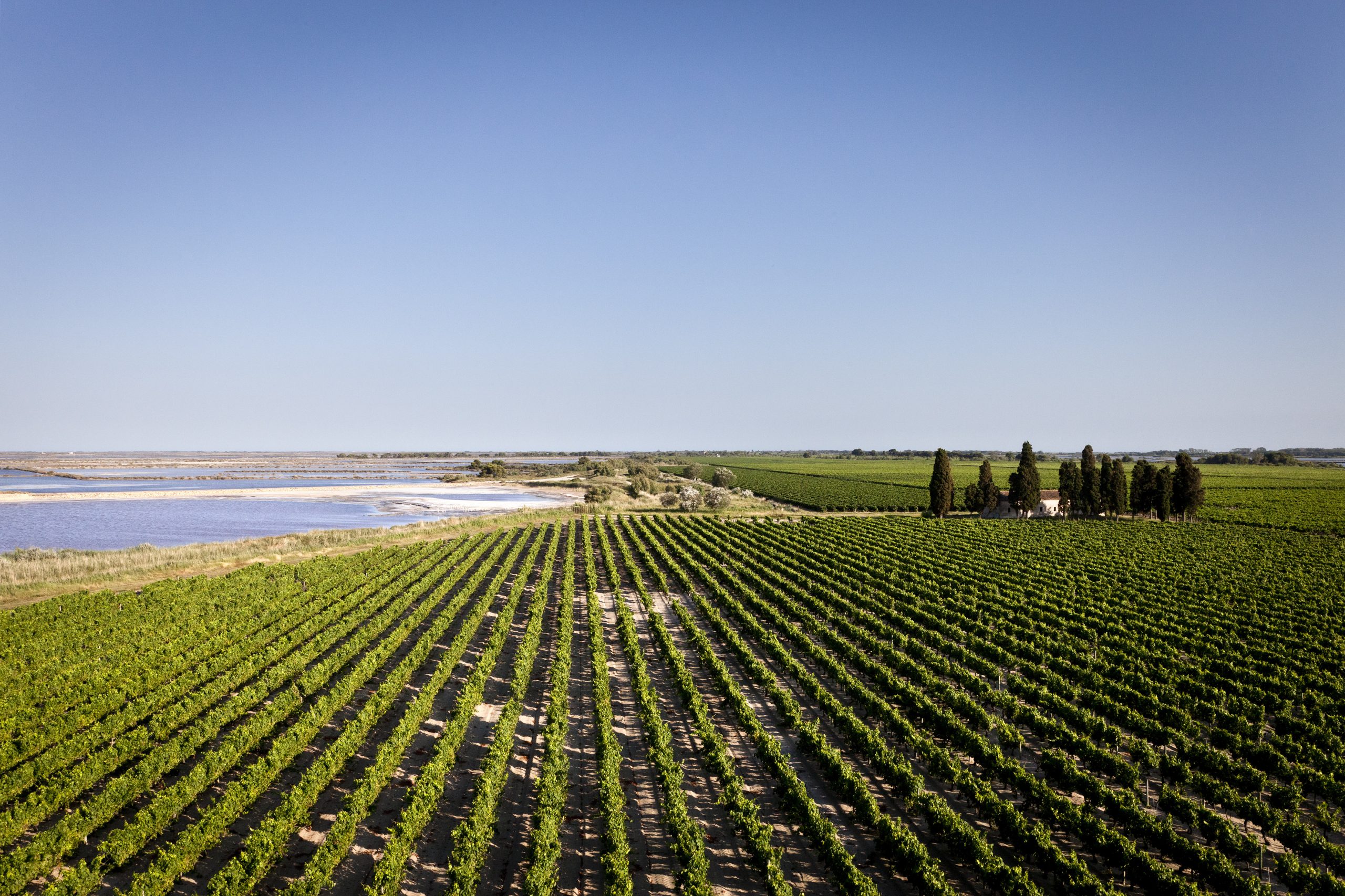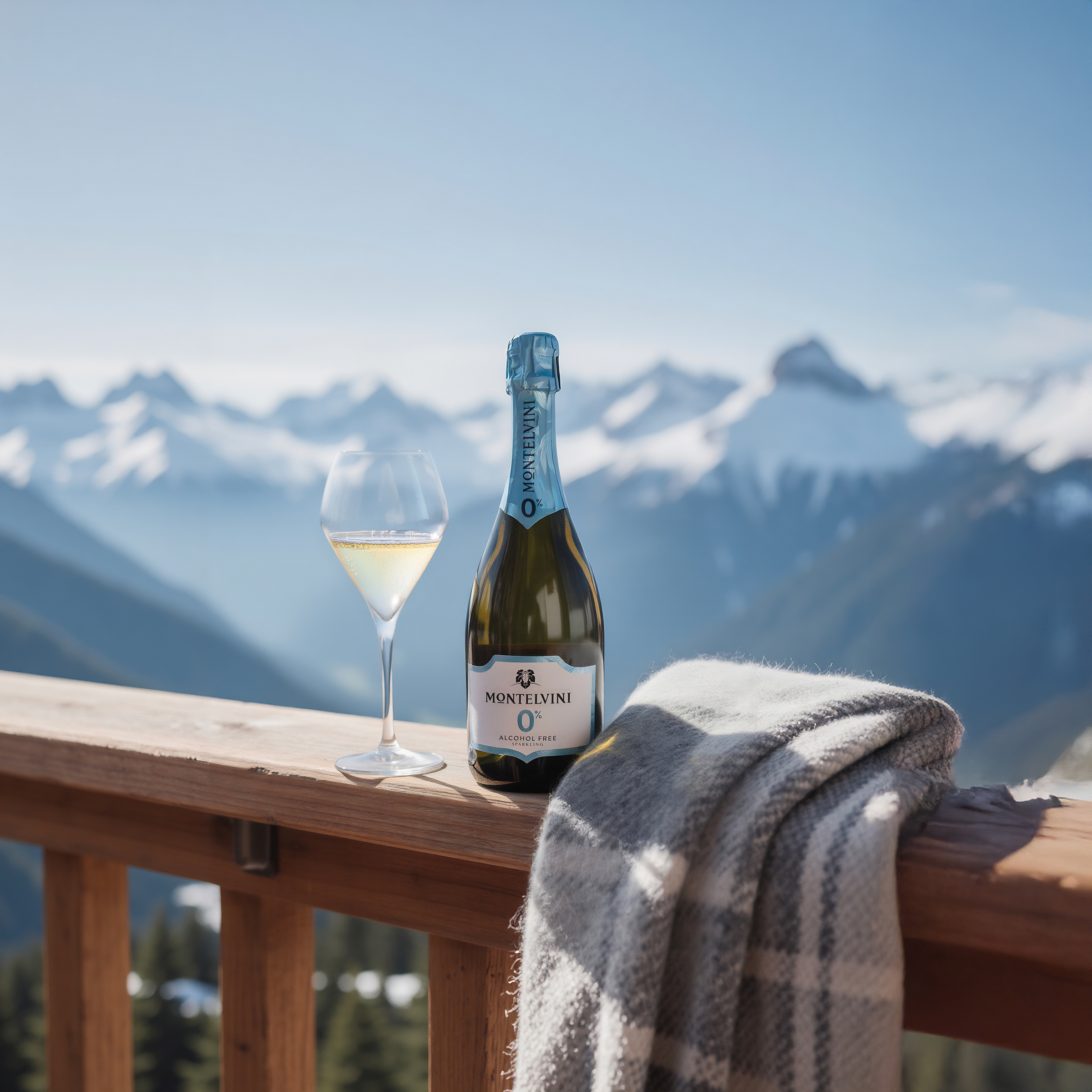Welsh winery uses sheep fleeces to ripen grapes
Gwinllan Conwy Vineyard is laying thousands of sheep fleeces between its vines to fight weeds and reflect sunlight onto ripening grapes.
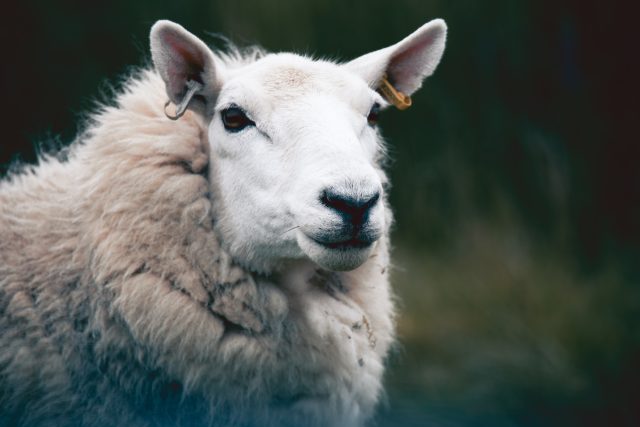
A trial at a Welsh winery has yielded such success that producers in New Zealand are considering following in its footsteps.
In what could prove to be a major ‘green’ breakthrough, Gwinllan Conwy Vineyard in Llangwstenin, Wales, began laying sheep fleeces on the ground in and around two rows of vines in October 2021. This week, it took delivery of more than 3,000 sheep fleeces to move forward with the sustainable method on a permanent basis, based on the trial’s overwhelmingly positive results.
The brainwave came from local Llangwstenin farmer Gareth Wyn Jones and his son Sion Jones after visiting the vineyard in 2021 and noticing that glyphosate weedkiller (likely to be banned in the UK soon) was being used around vines.
Winery co-owner Colin Bennett was looking for an alternative method to help keep weeds at bay, with a view to eventually converting the vineyard over to organic viticulture.
“I’d been putting fleeces around apple trees and on my veg patch,” Wyn Jones said. “The idea was to retain moisture and feed nutrients into the soil. Lanolin in the fleece also deters slugs and snails. Last year, I used them around strawberry plants and the results were absolutely fantastic.”
He mentioned this to Bennett, who liked the idea and agreed to trial it, using the sheep fleeces to ringfence a section of same-variety vines. No herbicide was used during the trial, and soil and leaf samples were taken to be compared with those from vines that hadn’t had fleeces near them, come harvest time.
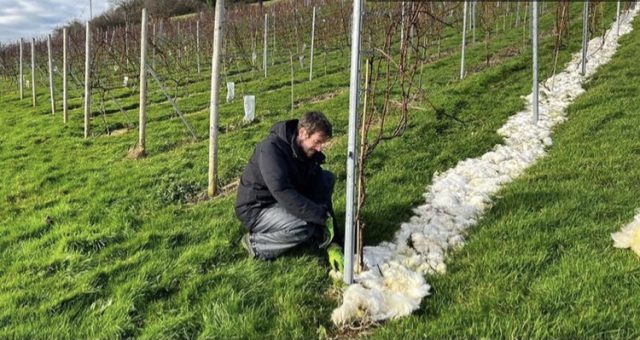
“When we analysed the soil and leaf samples, their nutrients were in perfect balance,” Bennett told the Daily Post. “It seems that as the fleeces degrade, they release nutrients into the soil, so feeding the vines. The benefits were miraculous.”
Partner Content
The whiteness of the fleeces also reflected the sun onto the vines, which helped to ripen the grapes more fully.
“More sugar means more alcohol and while a couple of per cent may not sound like much, our fleece-ripened grapes will produce a wine from classic varieties with a much fuller body,” said Bennett.
Gareth and Sion Wyn Jones have since formed the business Wool & Vine, which aims to provide Welsh fleeces directly to wineries to pursue a similar methodology.
And Gwinllan Conwy Vineyard became an instant customer.
“This is a world-leading development,” said Gareth. “Gwinllan Conwy is the first vineyard in the world to do this. It’s a win-win that is good for wildlife, good for soils and good for the environment.”
Wool & Vine has revealed it has been approached by contacts in New Zealand to talk business. Its founders have also partnered up with British Wool, the marketing body for Britain’s sheep farmers, to utilise its network. If this sustainable winegrowing idea takes off it could provide an outlet for millions of sheep fleeces that would otherwise be worthless, or worth very little.
“Being coarser, and traditionally used for carpets, Welsh Wool is more hard-wearing, so will last out in the open for 12 to 24 months,” said Gareth Wyn Jones. “It’s fantastic news for vineyards and other horticultural businesses. Perhaps before long, we’ll be sending Welsh fleeces across the Continent to France and Spain.”
Gwinllan Conwy is not the first winery to employ natural local resources to assist in the ripening of grapes. In Chile, Montes covers its vineyard floors in oyster and mussel shells to warm up its vines on the island of Mechuque.
“So far the black shells are absorbing the heat better and may help the grapes to ripen more fully and completely. I’m not sure we can reach 12 degrees alcohol, but they’re good base wines for sparkling,” owner Aurelio Montes told db.
Related news

